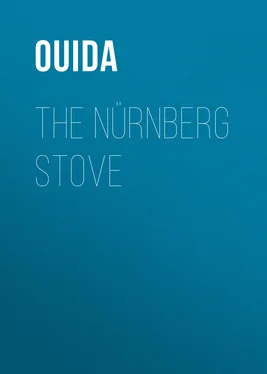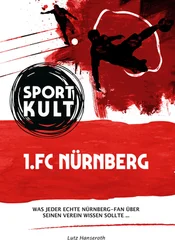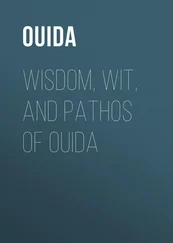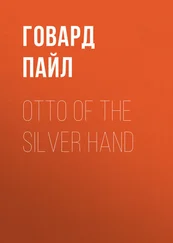Ouida - The Nürnberg Stove
Здесь есть возможность читать онлайн «Ouida - The Nürnberg Stove» — ознакомительный отрывок электронной книги совершенно бесплатно, а после прочтения отрывка купить полную версию. В некоторых случаях можно слушать аудио, скачать через торрент в формате fb2 и присутствует краткое содержание. Жанр: foreign_children, foreign_antique, foreign_prose, на английском языке. Описание произведения, (предисловие) а так же отзывы посетителей доступны на портале библиотеки ЛибКат.
- Название:The Nürnberg Stove
- Автор:
- Жанр:
- Год:неизвестен
- ISBN:нет данных
- Рейтинг книги:4 / 5. Голосов: 1
-
Избранное:Добавить в избранное
- Отзывы:
-
Ваша оценка:
- 80
- 1
- 2
- 3
- 4
- 5
The Nürnberg Stove: краткое содержание, описание и аннотация
Предлагаем к чтению аннотацию, описание, краткое содержание или предисловие (зависит от того, что написал сам автор книги «The Nürnberg Stove»). Если вы не нашли необходимую информацию о книге — напишите в комментариях, мы постараемся отыскать её.
The Nürnberg Stove — читать онлайн ознакомительный отрывок
Ниже представлен текст книги, разбитый по страницам. Система сохранения места последней прочитанной страницы, позволяет с удобством читать онлайн бесплатно книгу «The Nürnberg Stove», без необходимости каждый раз заново искать на чём Вы остановились. Поставьте закладку, и сможете в любой момент перейти на страницу, на которой закончили чтение.
Интервал:
Закладка:
Ouida
The Nürnberg Stove
I
AUGUST lived in a little town called Hall. Hall is a favorite name for several towns in Austria and in Germany; but this one especial little Hall, in the Upper Innthal, is one of the most charming Old-World places that I know, and August for his part did not know any other. It has the green meadows and the great mountains all about it, and the gray-green glacier-fed water rushes by it. It has paved streets and enchanting little shops that have all latticed panes and iron gratings to them; it has a very grand old Gothic church, that has the noblest blendings of light and shadow, and marble tombs of dead knights, and a look of infinite strength and repose as a church should have. Then there is the Muntze Tower, black and white, rising out of greenery and looking down on a long wooden bridge and the broad rapid river; and there is an old schloss which has been made into a guard-house, with battlements and frescos and heraldic devices in gold and colors, and a man-at-arms carved in stone standing life-size in his niche and bearing his date 1530. A little farther on, but close at hand, is a cloister with beautiful marble columns and tombs, and a colossal wood-carved Calvary, and beside that a small and very rich chapel: indeed, so full is the little town of the undisturbed past, that to walk in it is like opening a missal of the Middle Ages, all emblazoned and illuminated with saints and warriors, and it is so clean, and so still, and so noble, by reason of its monuments and its historic color, that I marvel much no one has ever cared to sing its praises. The old pious heroic life of an age at once more restful and more brave than ours still leaves its spirit there, and then there is the girdle of the mountains all around, and that alone means strength, peace, majesty.
In this little town a few years ago August Strehla lived with his people in the stone-paved irregular square where the grand church stands.
He was a small boy of nine years at that time,—a chubby-faced little man with rosy cheeks, big hazel eyes, and clusters of curls the brown of ripe nuts. His mother was dead, his father was poor, and there were many mouths at home to feed. In this country the winters are long and very cold, the whole land lies wrapped in snow for many months, and this night that he was trotting home, with a jug of beer in his numb red hands, was terribly cold and dreary. The good burghers of Hall had shut their double shutters, and the few lamps there were flickered dully behind their quaint, old-fashioned iron casings. The mountains indeed were beautiful, all snow-white under the stars that are so big in frost. Hardly any one was astir; a few good souls wending home from vespers, a tired post-boy who blew a shrill blast from his tasselled horn as he pulled up his sledge before a hostelry, and little August hugging his jug of beer to his ragged sheepskin coat, were all who were abroad, for the snow fell heavily and the good folks of Hall go early to their beds. He could not run, or he would have spilled the beer; he was half frozen and a little frightened, but he kept up his courage by saying over and over again to himself, “I shall soon be at home with dear Hirschvogel.”
He went on through the streets, past the stone man-at-arms of the guard-house, and so into the place where the great church was, and where near it stood his father, Karl Strehla’s house, with a sculptured Bethlehem over the door-way, and the Pilgrimage of the Three Kings painted on its wall. He had been sent on a long errand outside the gates in the afternoon, over the frozen fields and the broad white snow, and had been belated, and had thought he had heard the wolves behind him at every step, and had reached the town in a great state of terror, thankful with all his little panting heart to see the oil-lamp burning under the first house-shrine. But he had not forgotten to call for the beer, and he carried it carefully now, though his hands were so numb that he was afraid they would let the jug down every moment.
The snow outlined with white every gable and cornice of the beautiful old wooden houses; the moonlight shone on the gilded signs, the lambs, the grapes, the eagles, and all the quaint devices that hung before the doors; covered lamps burned before the Nativities and Crucifixions painted on the walls or let into the wood-work; here and there, where a shutter had not been closed, a ruddy fire-light lit up a homely interior, with the noisy band of children clustering round the house-mother and a big brown loaf, or some gossips spinning and listening to the cobbler’s or the barber’s story of a neighbor, while the oil-wicks glimmered, and the hearth-logs blazed, and the chestnuts sputtered in their iron roasting-pot. Little August saw all these things, as he saw everything with his two big bright eyes that had such curious lights and shadows in them; but he went heedfully on his way for the sake of the beer which a single slip of the foot would make him spill. At his knock and call the solid oak door, four centuries old if one, flew open, and the boy darted in with his beer, and shouted, with all the force of mirthful lungs, “Oh, dear Hirschvogel, but for the thought of you I should have died!”
It was a large barren room into which he rushed with so much pleasure, and the bricks were bare and uneven. It had a walnut-wood press, handsome and very old, a broad deal table, and several wooden stools for all its furniture; but at the top of the chamber, sending out warmth and color together as the lamp shed its rays upon it, was a tower of porcelain, burnished with all the hues of a king’s peacock and a queen’s jewels, and surmounted with armed figures, and shields, and flowers of heraldry, and a great golden crown upon the highest summit of all.
II
IT was a stove of 1532, and on it were the letters H. R. H., for it was in every portion the handwork of the great potter of Nürnberg, Augustin Hirschvogel, who put his mark thus, as all the world knows.
The stove no doubt had stood in palaces and been made for princes, had warmed the crimson stockings of cardinals and the gold-broidered shoes of archduchesses, had glowed in presence-chambers and lent its carbon to help kindle sharp brains in anxious councils of state; no one knew what it had seen or done or been fashioned for; but it was a right royal thing. Yet perhaps it had never been more useful than it was now in this poor desolate room, sending down heat and comfort into the troop of children tumbled together on a wolf-skin at its feet, who received frozen August among them with loud shouts of joy.
“Oh, dear Hirschvogel, I am so cold, so cold!” said August, kissing its gilded lion’s claws. “Is father not in, Dorothea?”
“No, dear. He is late.”
Dorothea was a girl of seventeen, dark-haired and serious, and with a sweet sad face, for she had had many cares laid on her shoulders, even whilst still a mere baby. She was the eldest of the Strehla family, and there were ten of them in all. Next to her there came Jan and Karl and Otho, big lads, gaining a little for their own living; and then came August, who went up in the summer to the high Alps with the farmers’ cattle, but in winter could do nothing to fill his own little platter and pot; and then all the little ones, who could only open their mouths to be fed like young birds,—Albrecht and Hilda, and Waldo and Christof, and last of all little three-year-old Ermengilda, with eyes like forget-me-nots, whose birth had cost them the life of their mother.
They were of that mixed race, half Austrian, half Italian, so common in the Tyrol; some of the children were white and golden as lilies, others were brown and brilliant as fresh-fallen chestnuts. The father was a good man, but weak and weary with so many to find for and so little to do it with.
Читать дальшеИнтервал:
Закладка:
Похожие книги на «The Nürnberg Stove»
Представляем Вашему вниманию похожие книги на «The Nürnberg Stove» списком для выбора. Мы отобрали схожую по названию и смыслу литературу в надежде предоставить читателям больше вариантов отыскать новые, интересные, ещё непрочитанные произведения.
Обсуждение, отзывы о книге «The Nürnberg Stove» и просто собственные мнения читателей. Оставьте ваши комментарии, напишите, что Вы думаете о произведении, его смысле или главных героях. Укажите что конкретно понравилось, а что нет, и почему Вы так считаете.












